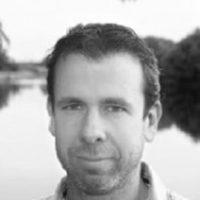
Research Fellow – Tidal Energy
Applications are invited from suitably qualified candidates for a full-time fixed term position as Research Fellow within the Sustainable and Resilient Structures Research Group in the SFI MaREI Centre based in the School of Engineering and Ryan Institute at the National University of Ireland, Galway.
This position is funded by the National University of Ireland Galway, as well as the European Commission through Horizon 2020 and Science Foundation Ireland, and is available from July 2022 for a period of 2 years initially (subject to extension if additional funding becomes available).
The Research Area
The successful candidate will join a multi-disciplinary team to develop pathways for a just transition in decarbonising our economy, while enhancing the health and resilience of our ocean & coastal communities (people, wildlife and environment). The main focus is developing tidal energy as a clean, affordable and reliable energy source. Tidal energy, in parallel with other renewable sources, is a key enabling technology to the decarbonisation of the global energy sector. It has the potential to contribute significantly to global electricity supply, with worldwide tidal resource estimated at over 1200 TWh per annum. It is very attractive as a renewable energy resource, as it is highly predictable and has little visual impact. The industry has progressed steadily over the last 20 years with the first utility-scale devices deployed in recent years, but there a number of key challenges to overcome for the sector to progress to full maturity. For example, tidal energy devices must efficiently generate power in hugely variable operating conditions, whilst being subjected to massive structural loads and extremely harsh marine climates. Furthermore, they must be deployed at sites with a suitable resource in such a way that they respect the requirements of other marine users and do not adversely impact on the environment.
Project Team
The research team comprises of eight (8) Principle Investigators and five (5) doctoral researchers within the Tidal Energy project ‘TIDAL-GES’ at NUI Galway. The project will engage with multiple stakeholders – including the people living in the coastal communities – to unlock the potential benefits for them in our drive to decarbonise the economy. Part of the NUI Galway Global Challenges Programme, the project will bring together a multi-disciplinary team of researchers and a wide variety of stakeholders. Through the H2020 CRIMSON project, the team is collaborating with a number of leading tidal energy technology developers to commercialise a recyclable and innovative manufacturing solution for an optimised novel marine turbine. The core interdisciplinary NUI Galway team will collaborate to develop pathways for a just transition in decarbonising our economy, while enhancing the health and resilience of our ocean & coastal communities (people, wildlife and environment).
- Prof Jamie Goggins (Professor of Civil Engineering, MaREI Centre, Ryan Institute & School of Engineering) will lead the project and lead the technical work on developing the next generation of tidal energy technology with the support of senior members of the Sustainable & Resilient Structures Research Group. Prof Goggins will be the direct line lead for the successful candidate.
- Dr Stephen Nash (Senior Lecturer, School of Engineering) will lead the work on tidal energy site modelling and the assessment of the impact of climate change on site characteristics and extreme events for tidal energy devices.
- Dr William Finnegan (Senior Research Fellow, School of Engineering) will lead the work on tidal turbine blade development.
- Dr Thomas Van Rensburg (Senior Lecturer, School of Business & Economics) and Prof Stephen Hynes (Professor in Economics and Director of the Socio-Economic Marine Research Unit) will jointly lead the work on the economic appraisal of tidal energy and the investigation of societal attitudes towards it.
- Dr Gesche Kindermann (Lecturer, School of Natural Science) will lead the work on stakeholder engagement and how tidal energy developers, local authorities and local communities of potential commercial tidal energy sites can work together to decarbonise the local economy, while also working together to deliver improved habitat and landscape conservation management.
- Dr Anne Marie Power (Senior Lecturer in Zoology, School of Natural Sciences) will lead the work on developing systems to quantify the interactions of tidal energy devices with wildlife, with PhD co-supervision from Dr Colin Lawton (Senior Lecturer in Zoology, School of Natural Sciences).
Research excellence is at the heart of what we do. We provide a rich, holistic & multi-disciplinary learning experience for each research student.
Job Description
The successful candidate will work in the Sustainable and Resilient Structures Research Group (www.nuigalway.ie/structures) under the supervision of Prof Jamie Goggins and Dr William Finnegan, but will have a key role in managing the successful delivery of TIDAL-GES project and team across the multiple research groups and Schools in NUI Galway. The successful candidate will also work on technical aspects of both the TIDAL-GES and H2020 CRIMSON projects with a specific focus on developing key components for tidal energy technology, such as blades, which will include design, analysis and laboratory testing.
Duties
Research
- Research into composite materials and sustainable structures, which will include design, analysis and laboratory testing. This will be done under the supervision and direction of your Principal Investigator.
- The successful candidate is expected to define research objectives and proposals for own (or joint) research in line with research strategy whilst contributing to the research programme of the Sustainable and Resilient Structures Research group (www.nuigalway.ie) in the MaREI Centre (www.marei.ie) at NUI Galway (www.nuigalway.ie). This will be under general guidance of the Principal Investigators/ Project Leaders.
- Demonstrate a thorough understanding of the research area(s) both nationally and internationally.
- Develop methods and techniques appropriate to the type of research pursued that add to the intellectual understanding of the field.
- Develop a growing reputation within their field of research.
- Thorough knowledge and understanding of the policy, practices and procedures, relevant to the role, the research fellow will provide advice to junior colleagues on policy and standards, which may include broader University/ sector/ external sponsor or funder (e.g. Commercial Awareness, Research Ethics, Knowledge Transfer, Patents, Intellectual Property Rights, Health and Safety, Equal Opportunities & Diversity).
- Decide on research programmes and methodologies, often in collaboration with colleagues and sometimes subject to the approval of the head of the research programme on fundamental issues.
Dissemination
- The successful candidate is expected to lead at least two publications in high quality peer reviewed journals per year.
- Engage in the dissemination of the results of the research in which you are engaged as directed by and with the support of and under the supervision of your Principal Investigator.
- Contribute to the dissemination of research findings as appropriate to the discipline in high quality/impact peer reviewed publications, conference presentations, knowledge share events.
- Present on research progress and outcomes e.g. to bodies supervising research; steering groups; other team members, as agreed with the PI/project leader.
- Attend and contribute to relevant meetings/conferences.
Management
- Successfully managing research projects.
- Support the Principal Investigator and research group in the design and development of the research programme.
- Complete administrative and management work associated with your programme of research.
- To identify potential funding sources and to prepare and write bids for funding proposals. To contribute and support the development of research grant funding applications.
- Where appropriate, act as project leader and as a line manager of research teams.
- Co-ordinate the work of research staff. Organise and conduct meetings with research staff to clarify objectives, develop work plans/timetables for research and support staff and communicate progress.
- Participate in the selection of staff working on their own projects.
- Develop and implement quality assurance measures.
- Deal with contract negotiation and financial allocation with other collaborators for research projects.
- Plan and implement commercial and consultancy activities
- To carry out any additional duties as may reasonably be required within the general scope and level of the post.
Support
- Support and, where appropriate, co-supervise the work of undergraduate students e.g. Final Year Project Students. Furthermore, co-supervision, tutoring, mentoring and training of research graduate students associated with your research group is expected.
- Contribute to teaching that shall normally be no more than 50 hours per annum in an associated school and under the supervision of an Academic Faculty member.
- Take responsibility as requested for day-to-day advice and support of graduate research students associated with your research group.
- Play a leadership role for junior colleagues
- Peer review manuscripts for publication and/or research bids.
- Provide expert advice on research issues to research fellows and other colleagues.
Other
- Expected to make a sustained contribution to the Sustainable and Resilient Structures Research Group’s research reputation and income.
- Continue to update knowledge and develop skills.
- Develop internal and external contacts with researchers in related areas.
- Contribute to work of the College/School/Research Unit through activities such as student Open Days, other promotion activity as appropriate.
- To carry out any additional duties as may reasonably be required within the general scope and level of the post.
Qualifications/ Skills required
The ideal candidate should hold a PhD in Civil Engineering, Mechanical Engineering, Chemical Engineering, Physics, Materials Science or equivalent, have a strong background in sustainable and resilient structures and is expected to have performed original scientific research within the renewable energy and/or offshore engineering sector. Candidates should have excellent communication and organisational skills; be highly motivated and passionate about renewable energy; and have strong documentation, oral and interpersonal skills. The position requires communication with the different partners of the consortium, thus excellent communication skills are mandatory.
Essential Requirements
- Honours degree (at least 2.1 or equivalent) in Civil Engineering, Mechanical Engineering, Chemical Engineering, Physics, Materials Science or equivalent.
- PhD in Civil Engineering, Mechanical Engineering, Chemical Engineering, Physics or Materials Science on the topic of renewable energy and/or offshore engineering and/or have 10+ years research experience in marine renewable energy.
- Evidence of leading research and development project teams.
- Demonstrable experience in both independent and collaborative research.
- Excellent verbal and written communication skills (English language).
- Evidence of scientific publication and dissemination of results in peer reviewed scientific papers.
Desirable Requirements
- Experience in laboratory testing, especially mechanical and/or structural testing.
- Evidence of experience in design, manufacture and/or testing of fibre reinforced polymer (FRP) composite structures.
- Evidence of commercial development of novel technologies.
- Evidence of innovative thinking, able to work both independently and in cross-disciplinary teams.
- Appropriate supervisory or teaching experience may be an advantage.
Salary
€56,993 to €62,037 per annum pro rata for shorter and/or part-time contracts (public sector pay policy rules pertaining to new entrants will apply).
Start date: The position is available from earliest possible start date from July 2022
Applications to include a covering letter, CV, and the contact details of three referees should be sent, via e-mail (in word or PDF only) to Ms Gráinne Morahan: ei.yawlagiun@naharom.enniarg.
Please put reference number NUIG RES 117-22 in subject line of e-mail application.
Closing date for receipt of applications is 5.00 pm Sunday 5th June 2022
Interviews are planned to be held during the week of 20th June 2022, which will be held virtually using MS Teams.
More information is available here.





